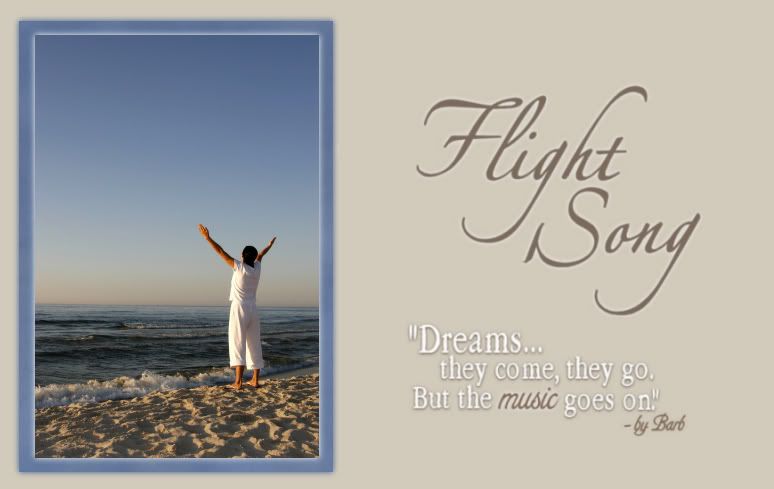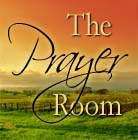Tuesday, September 05, 2006
Walk A While With Me
I don't know how to title this. Perhaps before I finish it, I will. It was my evening shift. The nurse I usually work with is more rough around the edges than necessary, and moody. She could make even silence work for her, but I had grown used to it, so wasn't surprised she was more quiet than usual.
I had almost finished giving patients their medicines. Still had paper work to do, but one who required little care needed a few minutes of my time, so I gave them to her.
She loved our singing a little song together about diamonds being a girl's best friend. So we did, and I continued pushing the medicine cart.
As I neared the nurses' station, several members of my family rushed in to tell me my son, their brother had killed himself.
One son had called ahead so other nursing staff would know.
The next weeks and months were unexplained chunks of time spent trying to understand. I functioned in a fog, not knowing or caring if it lifted, and for a long time it didn't.
A quiet little corner to come home to after work, and my Bible was what I held on to. I couldn't deal with much else.
Books about suicide say survivors of it grieve two deaths: that they died, and that they chose to.
I realize my son made the choice to stop living. but guilt, whether it's imagined, deserved, or heaped upon us, is just as difficult to bear.
He left a suicide note. In it he spoke mostly hatred and anger. After I read it I got scissors and cut it into tiny pieces, and threw it into garbage that would be picked up the next day. I didn't want to ever read it again.
He died almost two and a half years ago. I try to think of his chidhood instead of how his life ended, but I know it wasn't good, and though I couldn't make it better, I so wish I could. Lots of times he was not easy to like, and sometimes I got tired of trying. Now I wish I tried harder.
The worst part is knowing he felt we didn't care enough to help, even though I did help him many times. He feared being homeless, and would rather not live, than exist like that.
When I see a homeless person now, I try to see beyond the cardboard sign they're holding, try to see a soul in need of a bath, a shave. I wish I could get them new shoes, and clean clothes. I wonder how they came to be like they are. But I don't judge so quickly.
On the aniversary of my son's death, I drive somewhere and find one of them, and surprise them with more dollars than they probably hoped to get.
I don't care if they spend it on smokes or booze. A gift shouldn't be conditional. Other people buy cigs and drinks, and no one looks down on them or judges their spending. I can't change their circumstances, but I can do one little thing to make a miserable day better for them.
I give what I can to a charity that helps homeless and battered people. I'm not trying to buy freedom from guilt. I need freedom from regret.
When you haven't walked in someone else's shoes, it's real easy to say what they should or shouldn't do. When I pray about my son, I ask God to hold him tenderly. I so need him to know someone loves him.
I had almost finished giving patients their medicines. Still had paper work to do, but one who required little care needed a few minutes of my time, so I gave them to her.
She loved our singing a little song together about diamonds being a girl's best friend. So we did, and I continued pushing the medicine cart.
As I neared the nurses' station, several members of my family rushed in to tell me my son, their brother had killed himself.
One son had called ahead so other nursing staff would know.
The next weeks and months were unexplained chunks of time spent trying to understand. I functioned in a fog, not knowing or caring if it lifted, and for a long time it didn't.
A quiet little corner to come home to after work, and my Bible was what I held on to. I couldn't deal with much else.
Books about suicide say survivors of it grieve two deaths: that they died, and that they chose to.
I realize my son made the choice to stop living. but guilt, whether it's imagined, deserved, or heaped upon us, is just as difficult to bear.
He left a suicide note. In it he spoke mostly hatred and anger. After I read it I got scissors and cut it into tiny pieces, and threw it into garbage that would be picked up the next day. I didn't want to ever read it again.
He died almost two and a half years ago. I try to think of his chidhood instead of how his life ended, but I know it wasn't good, and though I couldn't make it better, I so wish I could. Lots of times he was not easy to like, and sometimes I got tired of trying. Now I wish I tried harder.
The worst part is knowing he felt we didn't care enough to help, even though I did help him many times. He feared being homeless, and would rather not live, than exist like that.
When I see a homeless person now, I try to see beyond the cardboard sign they're holding, try to see a soul in need of a bath, a shave. I wish I could get them new shoes, and clean clothes. I wonder how they came to be like they are. But I don't judge so quickly.
On the aniversary of my son's death, I drive somewhere and find one of them, and surprise them with more dollars than they probably hoped to get.
I don't care if they spend it on smokes or booze. A gift shouldn't be conditional. Other people buy cigs and drinks, and no one looks down on them or judges their spending. I can't change their circumstances, but I can do one little thing to make a miserable day better for them.
I give what I can to a charity that helps homeless and battered people. I'm not trying to buy freedom from guilt. I need freedom from regret.
When you haven't walked in someone else's shoes, it's real easy to say what they should or shouldn't do. When I pray about my son, I ask God to hold him tenderly. I so need him to know someone loves him.






